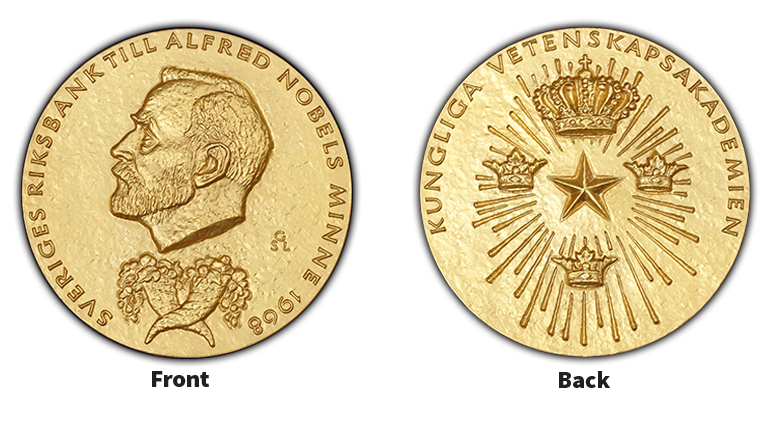Nobel << noh BEHL >> Prizes are awarded each year to people, regardless of nationality, who have made valuable contributions to the “good of humanity.” In his will, the Swedish inventor Alfred Nobel directed that the income from his estate be used to fund five annual prizes. The awards are given for the most important discoveries or inventions in the fields of physics, chemistry, and physiology or medicine; the most distinguished literary work of an idealistic nature; and the most effective work in the interest of international peace. The prizes were first presented in 1901. A sixth prize—the Sveriges Riksbank Prize in Economic Sciences in Memory of Alfred Nobel—was first awarded in 1969. This prize was established and is funded by the Sveriges Riksbank, Sweden’s central bank. The value of each of the six prizes is 11 million Swedish kronor (about 1 million United States dollars).

The Royal Swedish Academy of Sciences in Stockholm, Sweden, chooses the physics, chemistry, and economics winners. The Nobel Assembly at the Karolinska Institute in Stockholm awards the prize for medicine. The Swedish Academy in Stockholm awards the prize for literature. The Norwegian Nobel Committee elected by the Norwegian Storting (parliament) awards the prize for peace.
A candidate may not apply directly for a prize. A qualified person must submit each name in writing. For the literary prize, the Swedish Academy considers only works that have appeared in print. The academy usually selects an author for his or her complete work rather than for one book.
The organizations that award the prizes appoint 15 deputies who elect a board of directors. The board holds office for two years and administers the funds. Prizewinners receive their awards on December 10, the anniversary of the death of Alfred Nobel. The peace prize is awarded in Oslo, Norway. The other prizes are presented in Stockholm. Two or three people may share a prize. Sometimes, prizes are not awarded or are awarded in a later year.
